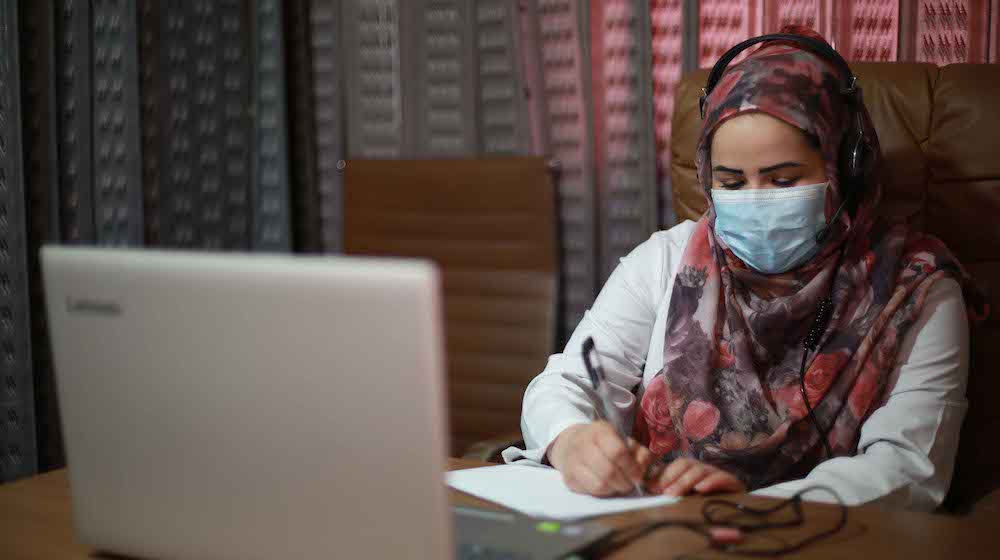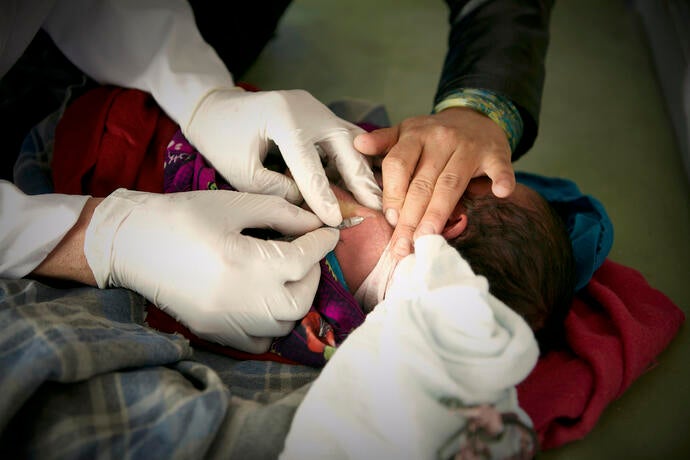Midwives continue to deliver amid uncertainty in Afghanistan

NEW YORK, United Nations/Afghanistan – Even before the current humanitarian crisis in Afghanistan, the maternal health situation. Pregnant women faced one of the highest maternal death rates in the world.
Today, “humanitarian catastrophe looms”, said UNFPA’s Executive Director Dr. Natalia Kanem at a high-level meeting at United Nations Headquarters. Forty years of conflict, chronic poverty, the COVID-19 pandemic, recent escalations in hostilities, and political uncertainty, have gutted the health care system.
“The sharp increase in hostilities across the country [has] also severely impacted health facilities and health personnel, and further stretched thin resources responding to the increased health needs,” reports the UN Office for the Coordination of Humanitarian Affairs.
Despite these challenges, midwives throughout Afghanistan are continuing to operate, bringing critical life-saving care to women and girls in need.
“UNFPA is committed to continue delivering for women and girls of Afghanistan,” said UNFPA’s Representative in Afghanistan, Dr. Aleksander Bodiroza.
Maternal health services uninterrupted despite hardships
Thankfully, UNFPA-supported services continue to operate. This is largely because they are conducted within, and with support from, local communities.
“Our strong community-based approach has allowed UNFPA to remain operational on the ground, working to ensure access to lifesaving reproductive health services, supplies, and medicines for all. This is critical for reducing maternal deaths and reaching the most vulnerable with essential health-care services,” Dr. Bodiroza said.
UNFPA’s midwifery helpline, for instance, provides uninterrupted remote support to midwives facing complicated deliveries, dangerous pregnancies, and other critical concerns. Two expert midwives and two gynecologists currently staff the helpline. These experts provide advice, referrals, and even step-by-step instructions to walk midwives through complicated, lifesaving procedures.
UNFPA also continues to operate three mobile health clinics in areas with large populations of displaced people. The clinics provide reproductive, maternal, newborn, child, and adolescent health care to those with access to few resources or services.

UNFPA’s family health houses provide maternal health services in remote areas of Afghanistan. In the first six months of 2021, they supported more than 9,500 safe deliveries. These, too, continue to operate.
Women helping women
These efforts are scaling up, where possible. Essential to these programs are the contributions and participation of women.
In fact, women professionals make up the majority of UNFPA’s teams on the ground. Their continued unrestricted mobility is necessary to continue UNFPA’s life-saving work.
“We must stand strong and stand together to save lives and protect the fundamental rights and freedoms of women and girls, including their right to participate fully in all aspects of society,” Dr. Kanem said.
Dr. Bodiroza echoed this urgent call to action. “Our ability to preserve the gains of the past 20 years for women’s reproductive rights is central for the future of the country.”
UNFPA originally posted a version of this story.